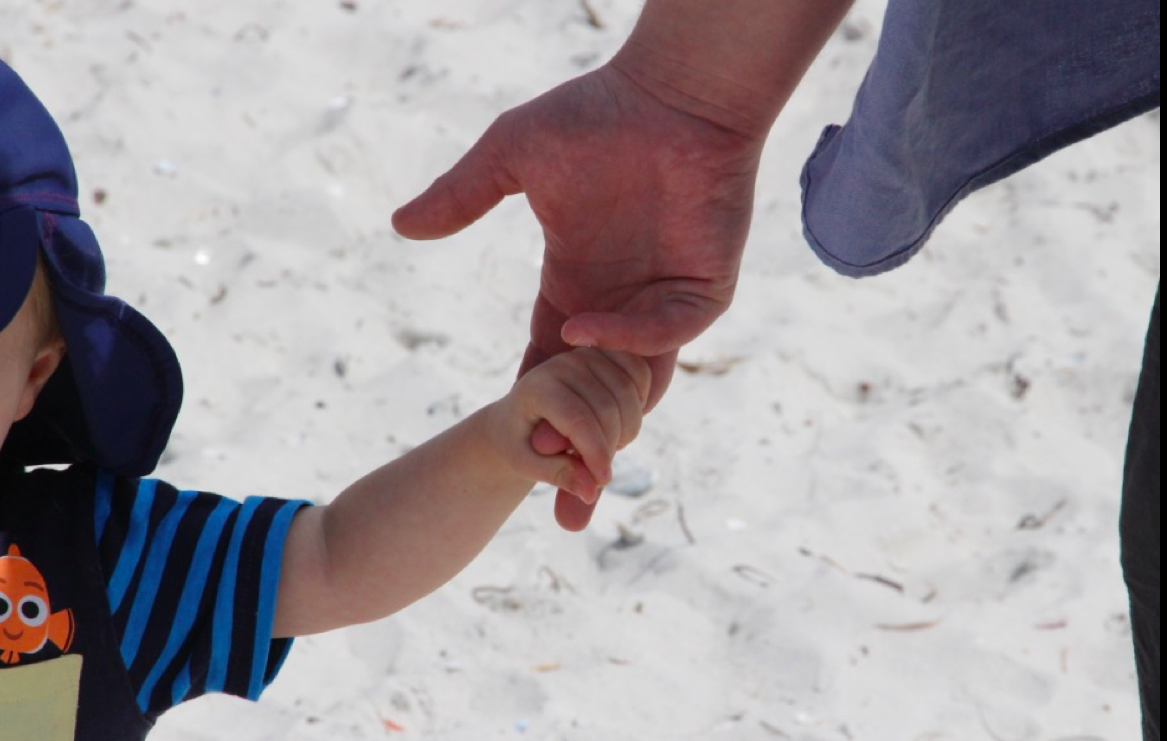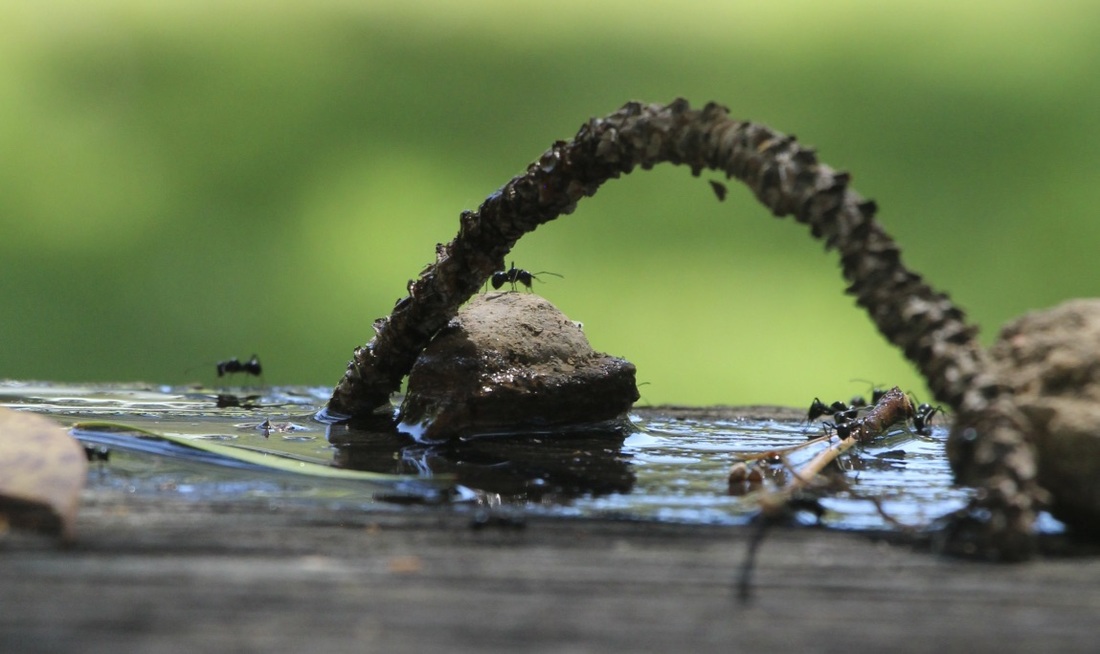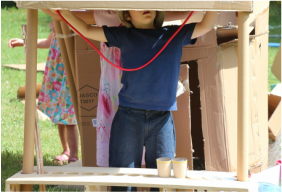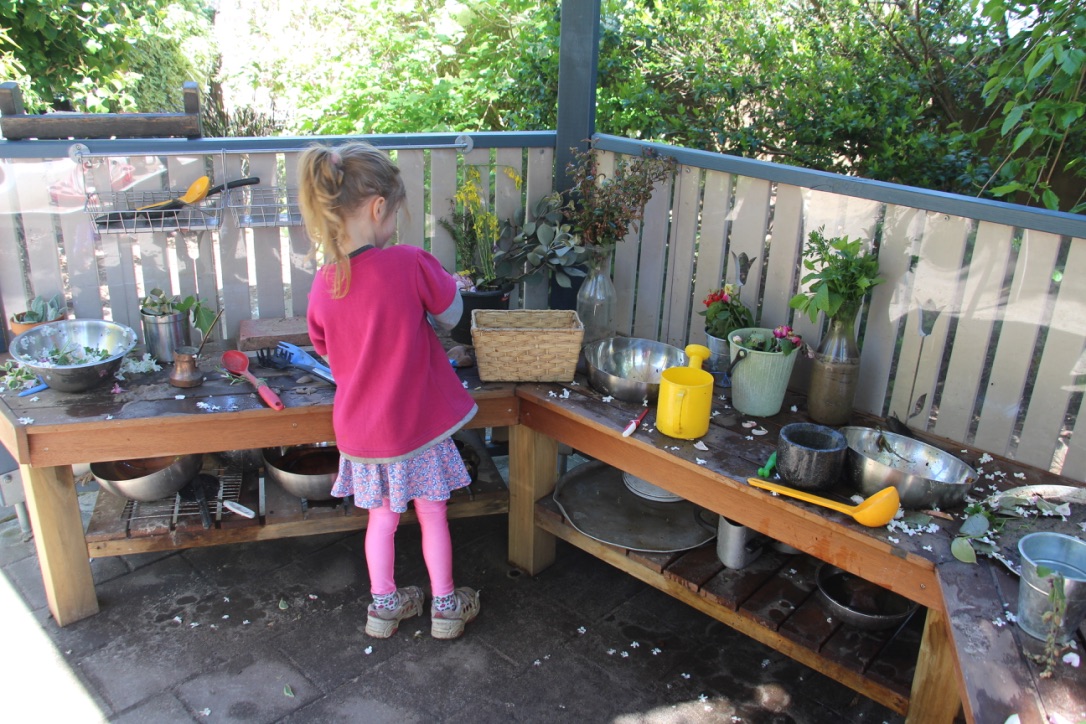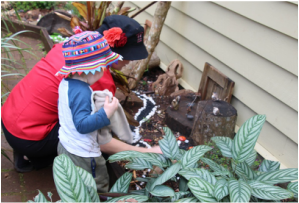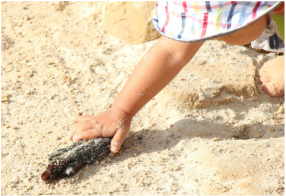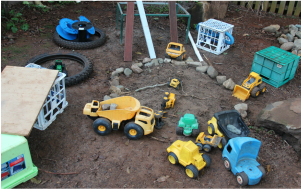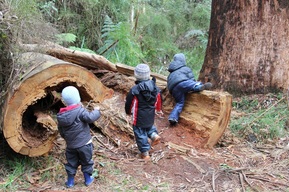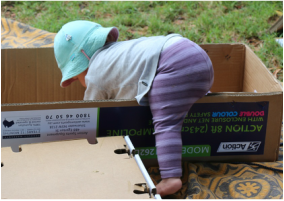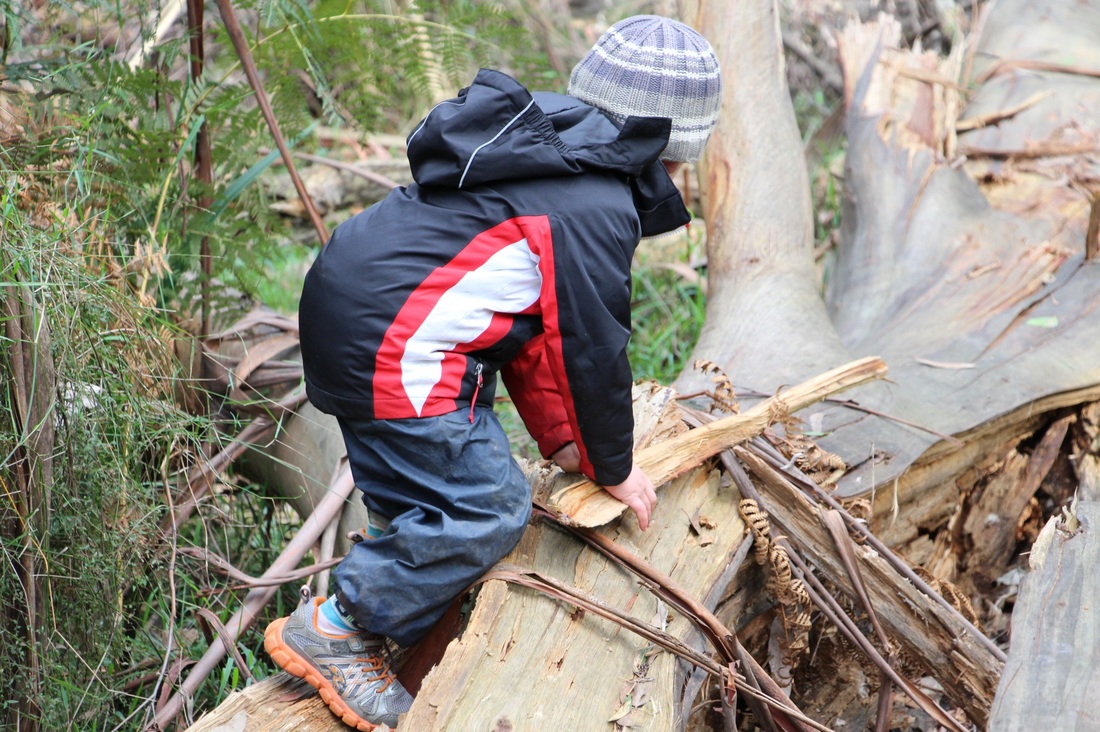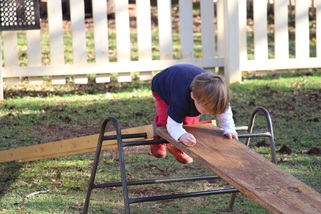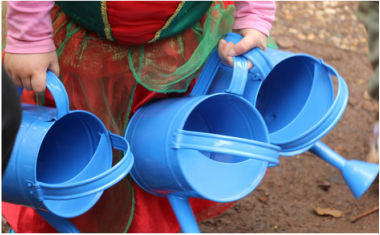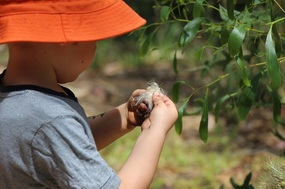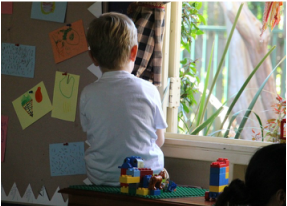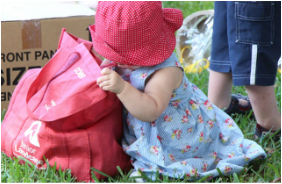Natural Learning
Professional Development Courses with Niki
Niki is flexible in the courses she offers ensuring that the sessions meet your requirements. We are always developing new programs and would be happy to develop one for you - just let us know.
Developing a Culture of Reflective Practice
Supporting educators develop new ways of thinking about their practice
|
High quality experiences for children don't just happen, they require a strong commitment from educators to constantly research, learn and reflect on current practice and strive to deliver the best program for children. Through this practice educators can identify potential issues and work towards overcoming them.
Critical reflection is a type of personal professional learning where educators question philosophy, ethics and practice, both as a team and personally. Critical reflection may lead to changes in practice that will advantage the children. In this session we explore what critical reflection involves, how educators can strengthen their own professional practice through developing deeper understandings, explore concerns and raise the quality of the care and education for all children in a safe space. Standard 1.2: Educators and co-ordinators are focused, active and reflective in designing and delivering the program for each child. Element 1.2.3: Critical reflection on children’s learning and development, both as individuals and in groups, is regularly used to implement the program. Element 4.2.2: Educators, co-ordinators and staff members work collaboratively and affirm, challenge, support and learn from each other to further develop their skills, to improve practice and relationships. Standard 7.2: There is a commitment to continuous improvement. |
The Healing Power of Connection and Nature
How educators can support children with mental health issues and make a difference
How educators can support children with mental health issues and make a difference
|
With a growing concern in the rise in mental health issues in even very young children, educators are increasingly looking for support in dealing with children with diagnosed and undiagnosed issues which may lead to a range of 'challenging behaviours' at home and in the class. Trauma, Anxiety, PTSD, Depression, ADHD are more prevalent in society than realised and currently diagnosed, educators are in a position to make a big difference in the lives of these children.
We will explore how some mental health issues can be transferred from one generation to another, how 'challenging behaviours' could be the child's way of communicating and asking for help and how adults can gently support and work towards healing these children through a combination of nature and a strong nurturing connection. |
|
helps you see what children are doing through the STEM magnifying glass, identifying scientific thinking, mathematical thinking, problem solving, engineering principles and technology (and we don’t just mean computers, tablets and apps!). Once you know what to look for, you will see it everywhere! STEM Detectives will then give you the tools and strategies you need to extend these concepts and provide opportunities for children to continue to develop a love of STEM!
|
Play IS the Child!
Investigating the value of Play
|
Play is often undervalued as frivolous and something children do when they have done their 'work'. In reality PLAY is a right all children have. This right is supported by the Australian EYLF which is a play-based framework. In this session we will explore what play looks like, what the different types of play are and how children's play can be used to support contextual learning. We will explore the adult role and how educators can facilitate real high quality play within their setting. We will investigate age appropriate play opportunities and how we as adults can challenge children's play.
|
Bringing Adventure Back into Play
Outdoor Learning Environments & Documenting Children's Play
|
In a risk averse culture true play opportunities have become limited, playgrounds have become over supervised, over structured, over safe and often ... downright BORING!
In this motivational session we will investigate and share environments that promote and indeed encourage children to play, to be engaged, to challenge themselves, to take emotional, social and physical risks. We will explore the adult role, the importance of assessing not just the risk but the benefit to children’s development, of creating engaging play opportunities that may involve an element of risk. We will share a range of inspiring, inexpensive and achievable ideas on creating high quality play opportunities using loose parts in any playground. Play spaces that will encourage well-being, engagement, imagination, creativity, gross and fine motor development, social and emotional development, risk taking, problem solving, science, technology, engineering, maths, literacy, - in fact ALL developmental opportunities and most importantly, that sense of adventure! We will also explore child friendly documentation that makes the incidental learning and development in children's play visible. |
The Adult Role in a High Quality Environment
Exploring the difference between Interference and Interaction
|
There is a fine line between interference and interaction, that feeling when children's play stops or changes as soon as the adult comes along. Sadly many well intentioned adults tend to interfere with children's play and development instead of facilitating high quality opportunities. In this professional development session we will explore the role of the adult, knowing when to step in and teach and when to step back to allow learning to happen naturally. We will look at examples of high quality physical environment, what they look like or more importantly, what they should ‘feel’ like? Appropriate inexpensive resources for different age groups as well as how learning can be documented in a child friendly and meaningful way.
|
Natural Creativity Outdoors
Imagination and creativity using Natural Resources
|
Albert Einstein states that imagination is more important than knowledge. In this imaginative and creative professional development session we will explore this statement looking at how imagination is important and allows children to become creative. This session offers a range of ideas and creative opportunities for working with children in the outdoor environment promoting imagination through the natural elements including soil, fire, air and water. We will look at examples created by children using loose parts found in natural spaces and how these can be presented to children as provocations for creativity.
|
Creativity Beyond Arts and Crafts
Looking beyond templates and worksheets!
|
We believe children are born creative, this natural creativity is most evident in the younger children and sadly is often stifled by well meaning adults in a variety of ways. In this motivational session we will explore different creative skills and how we as adults can nurture them as well as include the teaching of specific skills without diminishing natural creativity. Niki will share a range of practical suggestions and ideas on the presentation of creative opportunities including art, crafts, role play, cooking, construction and others in this inspirational workshop.
|
Documentation - Australian Learning Tracks™
Meaningful Documentation based on the Reggio Emilia and Project Approach
|
TESTIMONIAL
The assessor liked that she could clearly see things followed on, the programming cycle and the links to the EYLF. Thank you to Niki for teaching us to use this valuable tool that saves soooo much time and enables us to truly program in a child centred, meaningful way. We received our rating and have been classed as Exceeding, we are now going to apply for an excellent rating. (Amanda Botfield) |
One of the 'frustrations' often heard is that the amount of documentation required is taking educators away from the children. In this session we will unpick what meaningful documentation looks like, who we are doing the documentation for and how documentation is used for planning children's experiences through their interests. The children take responsibility for documenting their own learning during the child-led Project Approach according to Dewey in the 1920s.
In this inspiring session we will unpick some of these challenges, with reference to the NQS and NQF, while supporting the fundamental principles of the Reggio Emilia Approach. Niki will share with us her simple framework for documentation where the emphasis is on documentation WITH and FOR children rather than ABOUT children. The Australian Learning Tracks Framework™ consists of four meaningful documents which are Australia specific, link to the NQS and meet the requirements of the NQF while supporting the fundamental principles of the Reggio Emilia Approach.
|
Children in Wild Nature
Nature-based practice in Australia
|
A motivational day with Niki exploring the reality of children having regular access to the beautiful natural environment in Australia; bush, forest, beach or creek.
In this research based, theoretical and practical professional development day, Niki shares the benefits of nature exposure, what nature-based practice looks like, explores the benefits of risk taking and supports adults to experience practical aspects of working with nature. She will share the concept of benefit-risk assessments and the value of dynamically risk assessing opportunities. We will explore documenting children’s learning and development in a child friendly, Reggio Emelia inspired Project Approach. Niki has supported educators in setting up bush and beach schools in Australia over the last 4 years and was approached to write a practical book on this subject by an Australian publisher. |
Schematic Play
Planning Through Children's Natural Investigative patterns
|
Many young children like to do the same thing over and over again, often things that adults find annoying and frustrating such as moving toys from the home corner to the book corner, hitting other children, throwing objects. It often comes as a relief to adults when they realise these are normal patterns of behaviour where the child is trying to make sense of their world and not the child's intention to annoy the adult! Piaget referred to these as Schemas and once we recognise these, we as adults can plan experiences and opportunities for the children to satisfy this desire to investigate instead of seeing it as something we need to stop. In this session we will explore a number of different schemas and look at how we can use schemas to plan further meaningful opportunities for children. In my view this is one of the best ways to plan for our babies and toddlers.
|
At Risk!!!
The Common Sense Approach to Risk Management in a Social Child Care Context
|
Such a little word with so many negative connotations! Who or what is at risk? Is risk all bad or can it be good? With the growing concern for children's safety and fear of litigation many adults now see all risk as negative and to be avoided at all cost. This has lead to children being so over protected (if they could many adults would bubblewrap children!) that new, unexpected and often serious concerns are being raised.
Niki has become a leading advocate in supporting children as capable and competent self risk assessors. "The only way we can keep children safe is by supporting them to keep themselves safe" (Buchan N. Children in Wild Nature). In this motivational professional development session she will explore the difference between good and bad risk and hazard in the social childhood context and how best to manage these. It is vital that we identify and document not just the risks but also the benefits of opportunities, not all hazards can be identified and adults need to be skilled and alert at dynamically assessing risk allowing children's play to flow. |
I DID IT!!!!!
Supporting children in challenging themselves
|
That sense of achievement, of having succeeded, of overcoming a challenge is vital yet often missing in the daily lives of our young children.
Many children are perceived as not conforming, needing behaviour management plans and being ‘challenging’ – comments so often aimed at those delightfully active boys and girls! Could this be a case where the adult is being challenged and the child is lacking challenge? In this motivational professional development session we will explore the importance of achieving this 'I DID IT!' emotion and look at ways this can be introduced into the lives of young children. To achieve a sense of achievement will always include an element of risk although not necessarily physical risk. We will look at daily risk taking and ways to manage physical hazards to increase opportunities for children to challenge themselves. Warning – adults will be challenged in the process! |
Sustainability for Early Years
Not just all about environmental sustainability
|
Sustainability is the one standard in the NQF that needs to be embedded yet so often we hear that this is one of the areas settings struggle with. In this exciting professional development opportunity Niki shares some of her experiences and knowledge gained and shared while being involved in the highly successful Seedlings Early Years Education for Sustainability Project in Victoria. We will explore holistic sustainability, what this looks like in the early years and how this can be developed and documented in a child friendly and meaningful manner.
|
The Joy of Stuff
Loose parts - children need Stuff to do Stuff with
|
Ironically, we are surrounded by an overwhelming abundance of toys, yet few encourage fantasy, imagination or engagement. In this session we will explore the Theory of Loose Parts, what are age appropriate resources and practical ways to offer these within a childcare environment. We will look at judging the play value of resources against the cost both financially and environmentally. Niki will share lots of practical ideas, both indoors and outdoors, on resources that are simple and affordable yet offer highly complex play and learning opportunities for children of all ages. Definitely a course to attend before buying any more toys.
|
Play Spaces FOR Children
What children actually want in their outdoor play spaces
|
Ask a child what their favourite outdoor activities are and they will be quite specific on what they would really like...tree houses, swimming pools and skate parks feature often which might not always be achievable in a child care setting! In this professional development session we will look at appropriate ways of consulting children in developing THEIR playground as well as looking at elements of high quality playgrounds in Australia and around the world that can be created without huge expense.
|
Boys will be Boys
Really understanding and supporting our Kinaesthetic Learners
|
Why do so many educators find boys challenging? "Boys are too noisy, they can't sit still and they make weapons!!!" Sound familiar? Those poor boys just can't get it right! In this inspirational session we will explore why boys and other kinaesthetic learners behave the way they do and why we often find their behaviour challenging. We will look at research on weapon play and explore strategies on how this valuable form of play can effectively be managed in a way that does not compromise the boys' development or that of the other children in the setting. We will discuss and share strategies on how educators can involve and engage kinaesthetic learners both inside the classroom and the outdoors.
|
Boys and Girls come out to Play
Exploring the differences and similarities between boys and girls
|
Are boys and girls really so different? In this workshop we will explore the differences as well as the similarities between children of different genders - both can be considered challenging in different ways. We will look at what motivates children and how we can support them in a setting through really understanding them as well as following their interests.
|
"But Babies don't DO anything!"
Planning and providing high quality opportunities for our younger children
|
Planning and providing experiences for our younger children is often seen as difficult with some voicing "but they don't do anything!" Supporting the development of children under 3 is vital as this is when there is huge developmental growth. Understanding the capabilities and needs of this age group is crucial if we want to effectively support this development. In this inspirational session we will explore and develop an understanding of young children as investigators and how we can plan and provide for them through Treasure Baskets, Heuristic Play and Schematic Play.
|
School Readiness Versus Life Readiness?
What really matters in preparing children for the big transition to school
|
In this motivational session we will explore this fear/concern that children will not be able to cope with the transition to more formal education and the belief that they need to be prepared in advance. In this session we will explore what REALLY matters for our children, how we can support them to be ready for life and therefore more formal education. We will look into how we can support children and families in a meaningful manner
|

